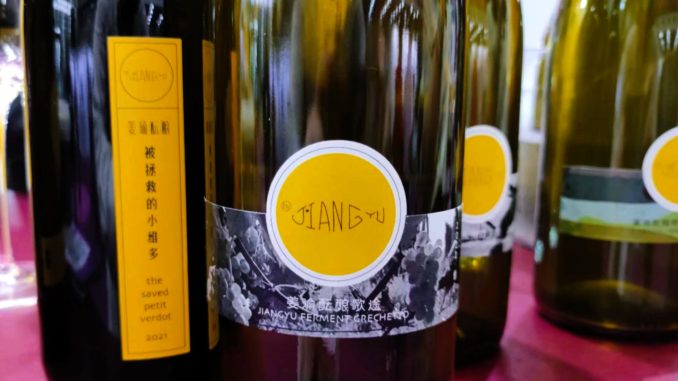
Boutique operation Jiangyu, not to be confused with mega producer and Shandong neighbor Changyu, was founded in 2019 and is quickly making a name for itself.
Jiangyu is a tiny winery based in Qiushan Valley, a fast-rising area near Yantai City, alongside producers such as Runaway Cow, Longdai (Lafite), Mystic Island and, first to literally set down roots, Treaty Port.
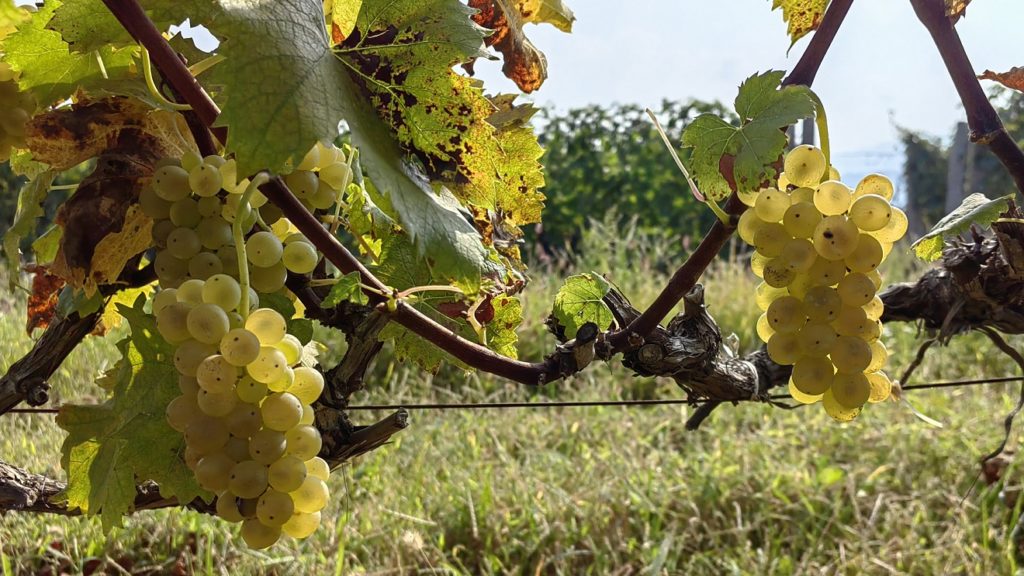
Jiangyou is also the rare winery in China using Grechetto, a grape native to Greece but most common in central Italy, where it is usually used in blends. In China, it is known as Ge Tu: ‘a journey accompanied by song,’
Winemaker Jiangyu–same name as the winery–says 7 mu of Grechetto (half a hectare) were planted in China in 2014, with production of just four barrels of wine in 2022. (He adds that there were originally 9 mu but that 2 mu were lost due to a new rail line.)
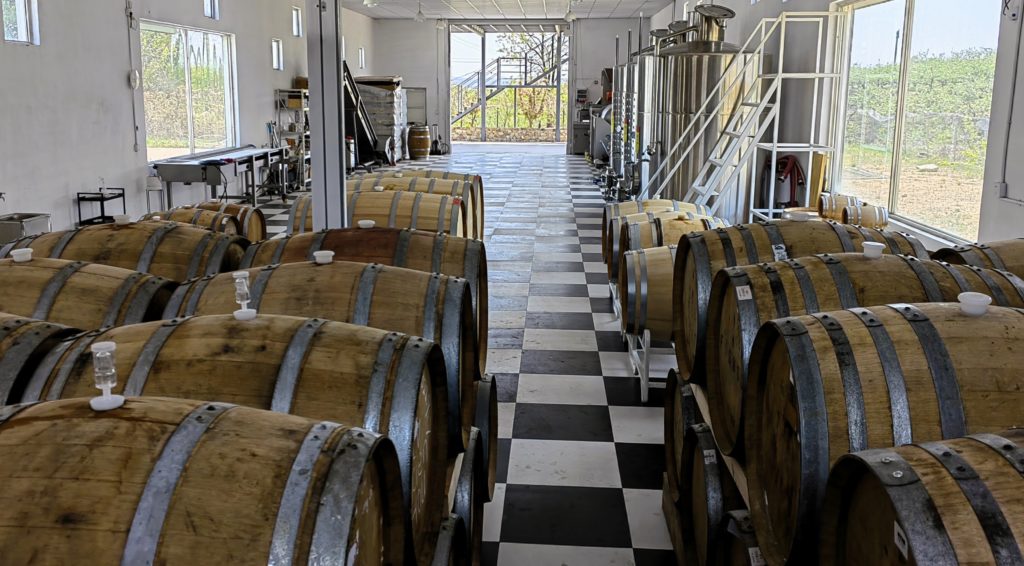
Jiangyu’s 2022 version uses handpicked grapes that are gently pressed, with the juice clarified in stainless steel tanks before being barrel fermented, then aged for 7.5 months in oak barrels.
The result is a smooth easy-drinking medium-bodied wine with white flower, pear and apple character, and a touch of lime and celery salt at the finish. This one weighs in at 12.5 percent alcohol and lists for RMB378 on jd.com.
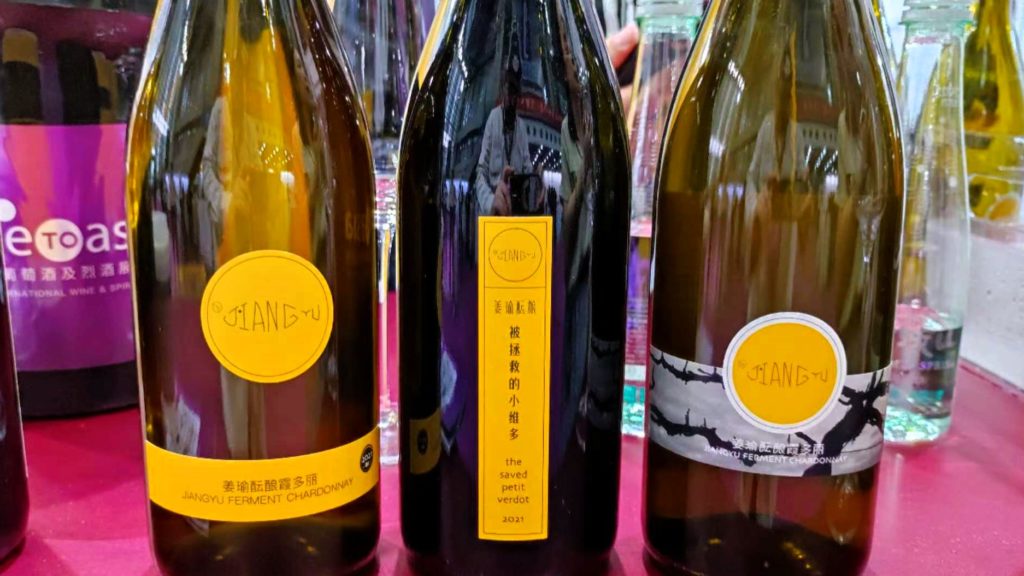
The bottle photos above are from the Shenzhen International Wine & Spirits Fair last May, organized by Wine to Asia, where I tasted Jiangyu’s Chardonnay, Riesling, Petit Manseng and Petit Verdot, too. (I also dragged about a dozen people, including a handful of Italians, over to the booth to try them.)
The Petit Verdot was a real attention grabber. Fragrant, with aromas of dark berries, cedar and a touch of mint, this soft and ripe wine had restrained tannins from old oak.
The two Chardonnays are distinct, with the juicy 2022 showing yellow fruit (peaches?) and a slight nutty / toasty character, while the 2021 had livelier acidity and more elegance, with pleasant tropical fruit flavors alongside citrus and light toasty notes.
The semi-sweet Petit Manseng offered aromas of sweet flowers, ripe apple and honey but I found it a bit too light, perhaps because I am used to drinking China’s heavier late-harvest Petit Mansengs.
In any case, Jiangyu’s wines are starting to pop up in bars and restaurants in major cities in China. That’s incredibly fast progress given he started by brewing two barrels of Cabernet Sauvignon, using borrowed facilities, in 2019, and just five barrels total of Cabernet and Chardonnay in 2020. It also a testament to the growing power of China’s niche producers and to the growing curiosity of consumers in these wines.
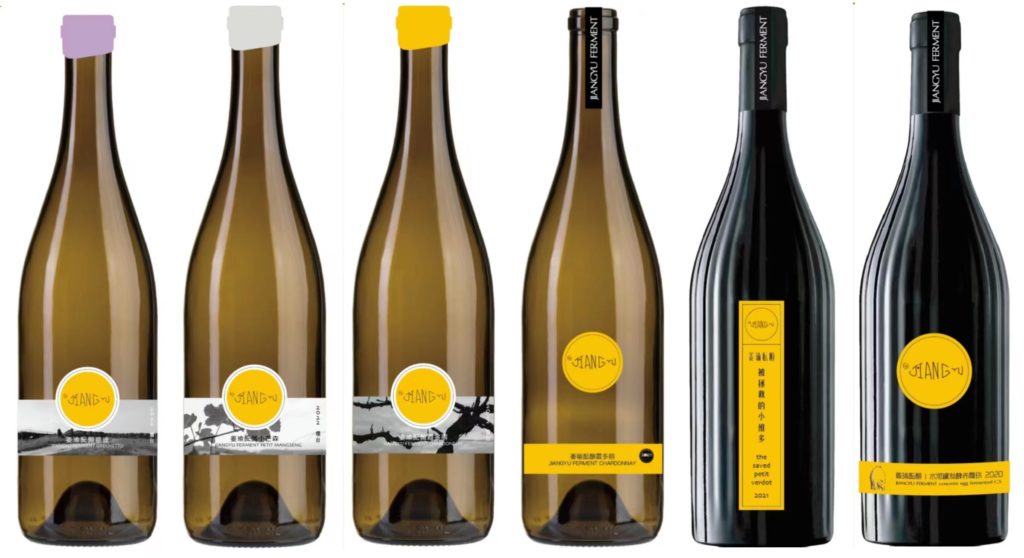
Grape Wall has no sponsors of advertisers: if you find the content and projects like World Marselan Day worthwhile, please help cover the costs via PayPal, WeChat or Alipay.
Sign up for the free Grape Wall newsletter here. Follow Grape Wall on LinkedIn, Instagram, Facebook and Twitter. And contact Grape Wall via grapewallofchina (at) gmail.com.

Leave a Reply
You must be logged in to post a comment.